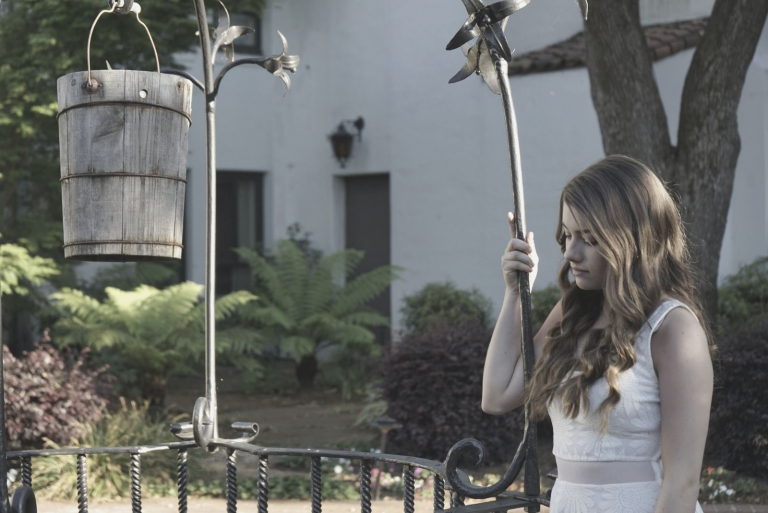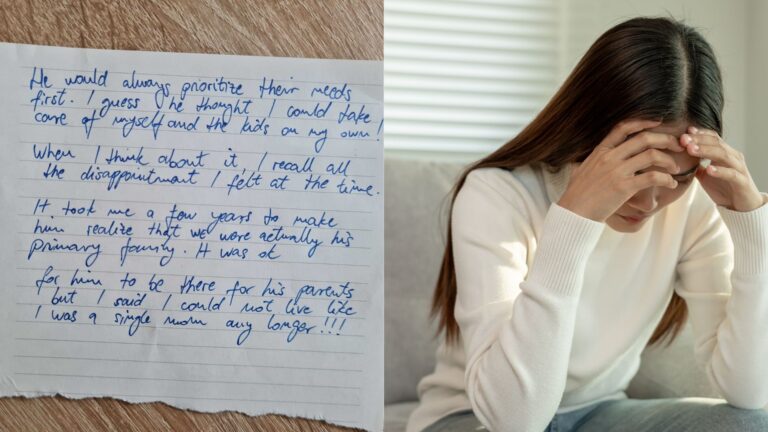16 Painful Clues Your Marriage Is Ending And 3 Things You Can Still Do About It
Sometimes the silence says more than the shouting. You know that awkward quiet at dinner, the kind where you’re suddenly hyper-aware of your spaghetti slurping? Yeah, that. Not all marriages go out with a bang—most just fizzle out, one ignored feeling at a time.
If you’re scrolling in search of a sign (or nineteen), maybe it’s time to pay attention to the little things that feel off. Don’t worry, I’m not here to pass judgment—just to hand you a mirror, a little sass, and maybe even a nudge of hope.
Whether you’re desperate to fix things or secretly Googling divorce lawyers, let’s get painfully honest for a sec: sometimes, things fall apart. And sometimes, it’s not too late—if you know what to do next.
1. Conversations Are All Logistics, Zero Heart

Ever found yourself texting your husband from the next room just to ask if he paid the water bill? It sounds silly, but when every talk is about chores, appointments, or who needs to pick up milk, something’s off.
You start to realize you haven’t laughed together in weeks, let alone shared anything deeper than a grocery list. Emotional connection? Ghosted. Before you know it, your relationship feels more like a business partnership than a love story.
I once caught myself writing “dog food” on the fridge list and thought, “When was our last real conversation?” That’s your sign: when you miss those late-night heart-to-hearts more than you miss missing socks, it’s time to pay attention. No one wants to feel like a roommate with benefits (or, let’s be honest, sometimes not even those).
2. Loneliness Hits Harder With Them Than Alone

It’s wild how you can feel isolated in a room filled with people, especially the one you married. There’s nothing quite like sitting five feet apart and feeling like you’re on opposite planets.
You scroll through your feed, thinking everyone else is cuddled up and you’re just… invisible. It’s not the empty house—it’s the emptiness you feel while sharing the same couch. Been there. That loneliness runs deeper than any girls’ night out can fix.
If the silence between you is heavier than your grocery bags, and it aches more to be with them than without, that’s not just a ‘bad mood.’ That’s your gut whispering, “Something’s missing.” Maybe it’s time to ask yourself: When did together start to feel lonelier than alone?
3. Curiosity Has Left the Building

You know that spark when they used to ask about your day, your dreams, or what you had for lunch? Gone. Now the only questions are, “Did you take out the trash?” or “Did you call your mom back?”
It’s like living with a stranger who doesn’t even care to learn your favorite ice cream flavor anymore. That playful back-and-forth, the deep talks at midnight—all faded out. Curiosity is replaced by routine.
I remember a time my partner used to text me, “What weird thing did you see today?” Now, it’s crickets. If there’s zero interest in your inner life (or theirs in you), it’s not just a phase. It’s a red flag, waving right in your face, and trust me, ignoring it won’t make it disappear.
4. Physical Touch is MIA—and No One Notices

Remember when a stolen kiss in the kitchen made your heart skip? Or when holding hands in public was a no-brainer? Now, you can’t recall the last time anyone reached out for a hug, let alone anything more steamy.
It’s not just about physical intimacy. Even casual touch—brushing past while making coffee, a squeeze on the shoulder—is gone. Sometimes, you don’t even notice until someone asks, “Are you two okay?”
If you’re honest, it almost feels like you’re preserving a fragile truce by keeping your distance. That’s not just a cold bed—it’s a cold war. When hugs and touch disappear, and nobody mentions it, something deeper is off. If nobody’s craving closeness, emotional distance is probably in the driver’s seat.
5. Arguments or Awkward Silence—No In-Between

What’s worse: fighting over toothpaste or not talking at all? In my book, it’s a tie. When every conversation spins into a spat or gets avoided just to keep the peace, you’re in a danger zone.
It’s like you’re tiptoeing around landmines, never knowing what will explode next. Or you just give up, and the silence grows roots between you. Either way, the dynamic becomes exhausting.
I used to think fighting meant passion. Turns out, constant arguments or long stretches of nothingness are just different flavors of disconnect. If you find you’d rather argue with the barista about oat milk than talk to your spouse, that’s telling. When there’s no in-between, the relationship is running on fumes.
6. Daydreams About Freedom, Not Reconciliation

There was a time when the thought of being single made your stomach drop. Now, it kind of feels like a vacation fantasy. You find yourself daydreaming about solo Netflix nights or booking a trip with the girls—no drama attached.
Freedom suddenly looks shinier than fixing what’s broken at home. It’s not about someone else; it’s the idea of being untethered. You catch yourself sighing, “Wouldn’t it be easier to just start over?”
It’s not necessarily selfish or heartless. It’s just honest. When your heart leans more toward escape than repair, that’s a huge signal. If the highlight of your week is alone time, not couple time, don’t brush it off. It’s not just burnout—it’s your spirit waving a white flag.
7. Secrets and Silence: No More Sharing

Once upon a time, you couldn’t wait to spill every detail—the good, the bad, the hilarious. Now, you guard your thoughts like state secrets. You skip telling them the real stuff, choosing friends or even your journal instead.
It’s not always about hiding scandalous things. Sometimes you just stop sharing the tiny wins, the scary dreams, or the things making you anxious. It feels pointless, or worse, unsafe.
I remember laughing about a nightmare to my bestie while my partner was in the next room. When you start saving your real self for someone else (or no one), the foundation is shaky. The silence isn’t golden—it’s heavy, and you feel it every time you bite your tongue.
8. Filtering Every Word: Emotional Safety is Gone

You catch yourself rehearsing what to say, editing every sentence in your head. Will he roll his eyes? Will she snap? Emotional safety used to be automatic, but now it’s a minefield.
Instead of being able to vent, you tiptoe around topics and choke down your actual feelings. It’s like living with a critic, not a confidant. You shrink back, quietly picking which battles to fight and which truths to swallow.
When you go mute rather than risk getting shut down or attacked, the relationship isn’t safe anymore. That’s not just uncomfortable—it’s exhausting. Everyone deserves a home where they can show up, mess and all, without fear of backlash.
9. Roommates, Not Lovers: Romance Left the Chat

It sneaks up on you: one day, you blink and realize you’re basically sharing a lease, not a life. The flirty texts, the stolen kisses—gone. Now it’s more about who cleaned the bathroom last and who left dishes in the sink.
You start feeling more like housemates than partners, with zero romantic or intimate layers left. Even eating together starts to feel like an obligation, not a date night.
I used to joke that we were “married with separate taxes” because everything felt so divided. If your relationship feels more like a shared Airbnb than a love nest, you know something’s off. It’s not about passion fading—it’s about partnership dissolving.
10. Dodging Alone Time is the New Normal

You used to crave date nights, maybe even a simple walk after dinner. Now, the idea of being alone together gives you mild anxiety or just sounds boring. You find creative excuses to fill the time with anything but each other.
It’s an art—planning group outings, inviting kids everywhere, or suddenly remembering errands. Anything to dodge that awkward alone time. It hurts to admit, but the spark for togetherness just isn’t burning.
When you’d rather battle mall crowds on a Saturday than face another silent dinner, it’s a sign. Avoiding time alone is more than a bad habit; it’s the relationship waving a red flag and begging for attention.
11. Everything They Do Gets Under Your Skin

There’s irritation—then there’s full-blown, irrational rage when he leaves shoes by the door. Or when she hums that same off-key song every morning. Suddenly, their little habits feel like personal attacks.
It’s not just about toothpaste caps or dirty mugs. It’s a buildup of resentment that makes you notice every single flaw. You can’t remember the last time their quirks were cute.
I once snapped over a spoon in the wrong drawer and realized: this isn’t about spoons. If their breathing makes you want to scream, it’s time to look deeper. Pet peeves on steroids are usually masking bigger issues.
12. No More ‘Us’—Only ‘Me’ and ‘You’

You used to say “we” about everything—vacations, goals, even grocery lists. Now, it’s “I’ll do this” and “You take care of that.” The team spirit has flatlined, and it shows up everywhere.
No more shared plans for the future, no more daydreaming together. You start making decisions alone, sometimes out of habit, sometimes out of necessity. It’s sobering when you notice your life is running on parallel tracks.
I remember realizing we hadn’t discussed a single joint plan in months. If you find yourself drawing lines instead of bridges, the unity is gone. A relationship without “us” isn’t really a relationship—it’s just two people sharing space.
13. Checked Out but Still Here: Emotional Abandonment

Here’s a special kind of ache: they’re right next to you, but it’s like they packed up emotionally and left months ago. You keep waiting for them to check back in, but it never happens.
You can spot emotional abandonment when you share something meaningful and it barely registers. Their eyes are glazed over, or worse, they just mumble a half-hearted response. It’s like talking to a wall that sometimes snores.
I once shared my biggest fear and got a distracted “That’s nice.” If your partner’s body is present but their heart clocked out, you’re not crazy for noticing. Sometimes, the goodbye happens long before the moving boxes show up.
14. Broken Trust, Never Repaired

Trust is that invisible glue holding everything together. When it’s cracked—by betrayal, lies, or even years of disappointments—it feels impossible to patch up. You try, but the old comfort never quite returns.
Every apology starts to sound the same, and you catch yourself checking phones or second-guessing every kind word. Trust issues turn love into detective work, and that’s a full-time job nobody wants.
I had a friend who said, “I forgave him, but I never forgot.” If you can’t let your guard down or you’re always waiting for the other shoe to drop, the foundation is broken. No amount of ‘trying’ can fix trust that’s never rebuilt.
15. Hope Checked Out: No Belief Things Will Change

There’s a moment where hope quietly packs its bags, and you barely notice until the heaviness settles in. You stop arguing to fix things—you only argue to survive the day.
Hope used to make you buy flowers or plan a trip. Now, it’s just about making it to bedtime without another fight. Even talking about change feels pointless, like rewriting the ending to a book you’re tired of reading.
I knew it was bad when the idea of “trying” made me sigh instead of smile. If the only thing keeping you there is inertia, not faith, that’s a sign hope’s left the building. Without hope, it’s just endurance, not partnership.
16. You Know Deep Down: Goodbye Already Happened

You don’t need someone to tell you it’s over. There’s a quiet when you know, deep down, the goodbye happened long before anyone said the words out loud.
You might keep going through the motions, but your heart already left the party. Friends ask, “How are things?” and you just shrug, because explaining seems impossible. Sometimes you even mourn what was, while still living together.
I once sat in my car for twenty minutes after work, just to avoid going inside. If you feel like you’ve already let go—even if you haven’t packed a single box—that’s the loudest clue of all. Trust yourself. The ending started before you ever said it.
17. Name What’s Really Happening And Say It Out Loud

One of the hardest but most powerful steps in a struggling marriage is naming what’s actually going on — without sugarcoating, dismissing, or blaming. Whether you’re sharing it with your partner, a therapist, or writing it in a private journal, honest clarity is the beginning of any true healing.
You can’t repair what you refuse to recognize. Silence might feel safer in the short term, but it often feeds resentment and confusion. Saying, “We’re not connecting anymore,” or “I feel like I’m disappearing in this relationship,” opens the door to truth — and truth invites either repair or release.
Don’t bury your feelings just to keep the peace. Let them rise. Speak them clearly, without cruelty. Your voice matters, and so does your emotional reality — even if it’s uncomfortable.
18. Ask Yourself What You Want Not Just What’s Wrong

It’s easy to list what hurts: the distance, the arguments, the silence. But under the pain is an even more important question — what do you actually want now? Do you want to rebuild this relationship? Are you still emotionally invested? Or are you hanging on out of habit, fear, or guilt?
Getting honest with yourself is key. What you desire — peace, partnership, space, or reconnection — should guide your next steps, not just what’s broken. It’s not selfish to want more joy or less stress. It’s not wrong to want clarity, romance, or freedom.
You’re allowed to say, “I don’t know what I want yet,” too. Just don’t skip this step. Your needs, dreams, and instincts aren’t inconveniences — they’re compasses. Let them guide you gently, not guilt-trip you into silence.
19. Make a Decision Not Just a Reaction

When emotions run high, it’s tempting to slam doors or stay frozen out of fear. But life-changing choices deserve more than heat or hesitation. Don’t stay simply because you’re afraid to leave. Don’t leave just because you’re hurt and angry.
Give yourself the space to think, grieve, reflect, and choose with intention. Whether you decide to work on the marriage, separate, or take a break — let it be a decision that aligns with your truth, not just a reaction to temporary pain. That may mean therapy, journaling, or difficult conversations.
Clarity doesn’t always feel good, but it feels clean. No matter what you decide, make sure it’s a choice rooted in self-respect and long-term peace — not just momentary relief or pressure. You don’t need permission. You just need truth + courage.







